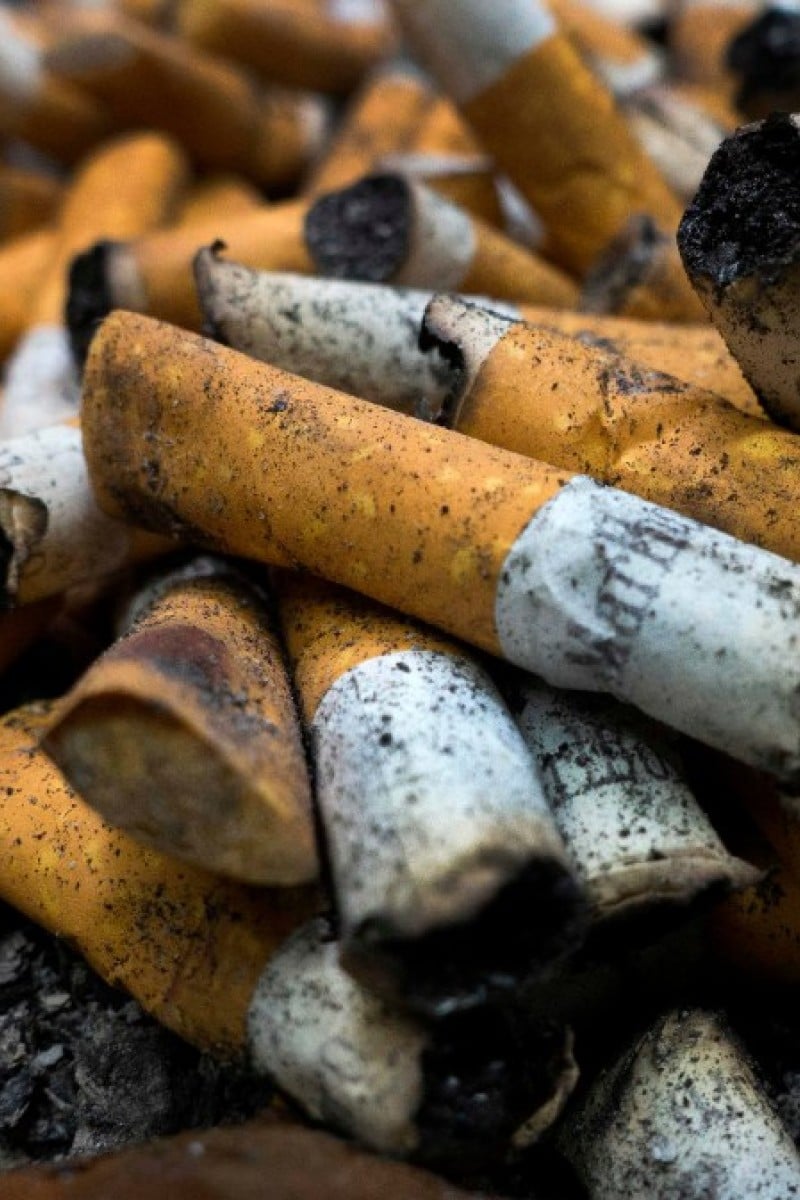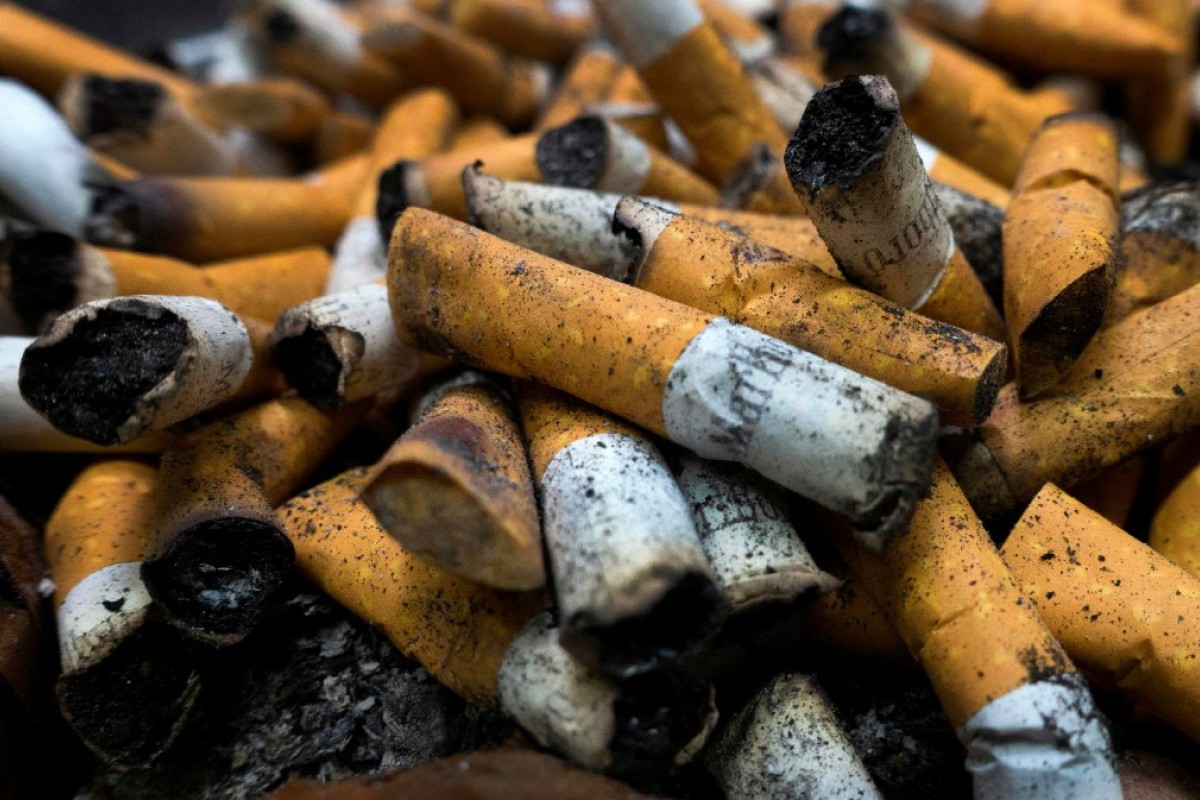
Yet another reason smoking is bad - cigarette butts are filled with microplastics that are killing the oceans
- Not many people realise the ends of smoked cigarettes contain plastic, so are not biodegradeable, and they're damaging the environment
- Cigarettes are one of the most common pieces of rubbish
 No, they don't just disintegrate. Yet another reason not to start.
No, they don't just disintegrate. Yet another reason not to start.If you needed YET another reason never to start smoking, this could be it: as well as the damage the chemicals in a cigarette do to your body, it turns out the butts, or cigarette filters are pretty awful for the environment.
The filters, made of tightly packed plastic fibres, start to erode into smaller and smaller plastic bits, joining a cascade of microplastic pollution that’s bedevilling the world’s oceans and the living things they support.
Microplastics may be small, but their impact is far from it.
“Viruses aren’t big, either,” said Robert Hale, who studies microplastic pollution at the Virginia Institute of Marine Science (VIMS). “So the idea of something small being not a problem is actually completely 180 degrees from reality.”
Plastic bags, balloons and water bottles pose one threat when they’re ingested by sea turtles, fish and waterbirds that mistake them for food.
But microplastics - or, more accurately, micro shards - get gobbled up by the tiniest creatures that form the base of the marine food web. Some pieces are so tiny that they can pass through cell membranes.
Those micro shards climb the food chain, compounding the damage and the dangers along the way.
5 ways to live a life with less plastic
For more than 20 years, cigarette butts have been the No. 1 debris item reported in the US state of Virginia during coastal cleanups, according to Katie Register, executive director of Clean Virginia Waterways of Longwood University.
Register wrote the 2016 Virginia Marine Debris Reduction Plan for the Coastal Zone Management Programme at the university’s department of Environmental quality.
That finding bears out whenever VIMS staff and student volunteers conduct a beach cleanup. In around a kilometre of shoreline over the course of less than an hour, volunteers can pick up more than 3,000 cigarette butts - far outpacing the number of plastic food wrappers from a recent cleanup (981), fast food containers (15), foam packaging (60) and bottles (6).
We tried to live plastic-free for a week - this is what happened
“I would imagine many people are working under the assumption that cigarette butts are biodegradable,” said Meredith Evans Seeley, a doctoral student studying plastics in Hale’s lab.
“I think many people believe that they break down into the environment and break down fully, so that they’re not causing any harm.”
Plastics can last seemingly forever, and they’re everywhere.
Think microplastics don't affect you? Scientists have found it in your poop, so maybe think again
Earlier this year, scientists said they found tiny plastic particles raining from the sky in such pristine areas as the Pyrenees Mountains in southern France, and in the deepest depths of the oceans, where tiny bottom-dwelling creatures routinely eat them.
“We can now say with confidence that plastic is everywhere,” Alan Jamieson, marine biologist at Newcastle University in England and lead author of the deep ocean microplastics study, told National Geographic in February.
Hale and Seeley, for instance, and their colleague Patty Zwollo, biology professor at the College of William and Mary in the US, have studied microplastics - and the chemical additives leaching out of them - that wash up even in remote parts of Alaska.
Are paper straws really better for the environment than plastic ones?
Pristine estuaries there, said Seeley, receive huge loads of plastics from the Pacific Ocean.
To curb the flow of plastics into the oceans, Seeley uses the analogy of the overflowing bathtub: you don’t tackle the problem first by cleaning up the mess on the floor - you turn off the tap.
“You need to turn off the [tap] of plastic pollution to the ocean, which involves educating people on how it breaks down into microplastics, as well as thinking of resources and alternatives to single-use plastics,” said Seeley.
Even cutting down on items like plastic straws or cutlery can have a big impact over time, she said. Smokers can buy pocket ashtrays or insulated bags to dispose of their cigarette butts.